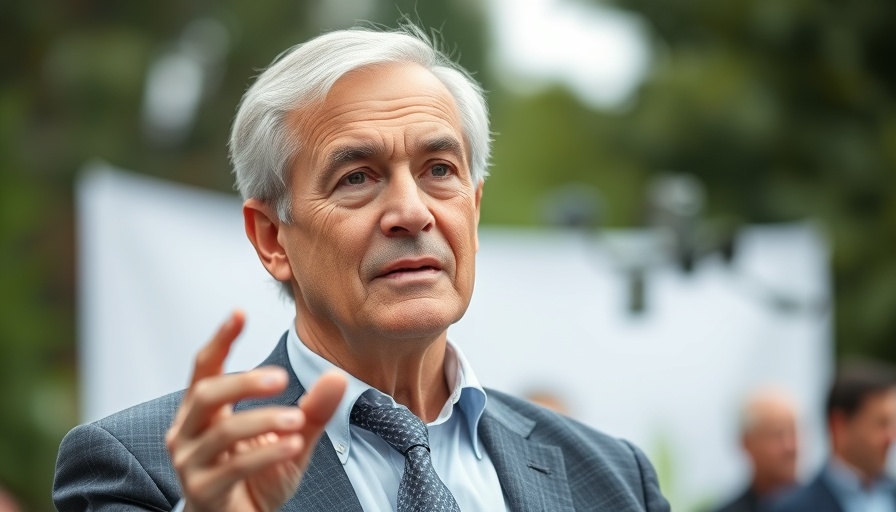
The Shift in Vaccine Recommendations: What Does It Mean?
In a controversial move that has ignited debate across the nation, Robert F. Kennedy Jr., the US Health Secretary, has announced that the COVID-19 vaccine will no longer be recommended for healthy children and pregnant individuals. This decision, shared on social media, arrives at a time where vaccine mandates and public health guidelines are already contentious topics. While Kennedy celebrates his alignment with "MAHA moms"—a group known for their vocal skepticism towards vaccines—medical professionals are raising alarms about the potential consequences of this policy change.
Understanding MAHA Moms and Their Influence
The MAHA (Make America Healthy Again) movement, largely supported by a faction of parenting groups, has gained traction through its firm stance against established medical guidelines, particularly regarding vaccines. These parents express deep mistrust towards conventional medical practices, voicing concerns not only about vaccines but also about other health-related issues, such as the use of fluoride in water and the dangers of ultra-processed foods. Their influence is notably significant, as they actively participate in shaping the health policies that affect families nationwide.
Doctors Push Back: A Call for Safety
Despite the political backing, many healthcare professionals are expressing their discontent over Kennedy's announcement. Leading OB-GYN Dr. Amanda Williams states unequivocally, "There is no OB-GYN in this country that I know who is in agreement with this recommendation." Pregnancy, considered a high-risk condition, remains a prominent concern among healthcare providers. Experts frequently warn that pregnant individuals face elevated risks of severe illness from COVID-19. CDC recommendations, which still advocate for the vaccination of pregnant people, contrast Kennedy’s sweeping statements.
The Implications of Altered Health Guidelines
As this drama unfolds, it reveals significant implications not just for individual families but for public health at large. By not recommending the vaccine for pregnant individuals—who are scientifically classified as high-risk—the potential for increased COVID-19 related complications arises. This scenario comes at a time when the medical community begins to see pandemic fatigue and an inflection point in vaccine uptake, raising questions about the public's overall health security.
Contrasting Views: Vaccine Skepticism vs. Medical Consensus
The dichotomy between those who support Kennedy's recommendations and those advocating for continued vaccination highlights an ongoing struggle in the public perception of healthcare. While the MAHA moms rally behind personal choice and parental rights, established organizations such as the American Academy of Pediatrics and the American College of Obstetricians and Gynecologists have not wavered in their recommendations promoting vaccinations during pregnancy. This conflict emphasizes the divergence between grassroots movements and the scientific community's consensus, creating a challenging landscape for parents seeking reliable information.
What Should Parents Do?: Seeking Clarity Amid Confusion
For parents caught in this confusing web of information, what actions can they take? First and foremost, it is vital to consult trusted healthcare providers rather than solely relying on sensationalized accounts or social media narratives. Engaging in constructive discussions with healthcare professionals can yield personalized recommendations based on the latest research and medical guidelines. Additionally, network with other parents and communities who prioritize informed choices based on scientific evidence, cultivating a supportive environment among those navigating similar dilemmas.
Future Health Recommendations: What Lies Ahead?
The future of public health recommendations remains uncertain, especially with continuous political shifts and evolving medical guidance. Should resistance to vaccinations persist among certain groups, the potential for increased health disparities grows. As the conversation about vaccination strategies progresses, parents must empower themselves with knowledge and remain vigilant about changes in health policies affecting their families.
As we navigate this complex terrain of medical recommendations, it is essential to foster constructive dialogues between various factions—public health officials, healthcare providers, and concerned parents alike. Open discussions, grounded in compassion and science, may pave the way for a more united approach to addressing both individual health and broader public safety challenges.
 Add Row
Add Row  Add
Add 




 Add Row
Add Row  Add
Add 

Write A Comment